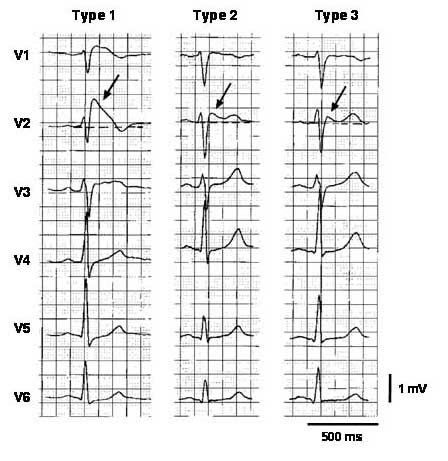This is an automatically translated article.
Article by Dr. Dao Thi Mai Lan - Vinmec Institute of Stem Cell and Gene Technology
Genetic testing for epilepsy helps find the cause of the disease, avoiding unnecessary expensive, invasive interventions.
1. What is epilepsy?
Epilepsy is one of the common neurological diseases defined by spontaneous and recurrent seizures, occurring in about 0.5% - 1% of the population in developed countries and may be higher in the developing countries. According to statistics from WHO, it is estimated that 50 million people worldwide have this disease and 80% of them live in low- and middle-income countries, so this is the burden of disease in the world. many country.According to the International Federation against Epilepsy (ILAE), epilepsy is defined as a brain disease that meets one of the following criteria:
1) At least 2 seizures occurring with an interval of ≥ 24 hours.
2) had 1 seizure and a similar (≥60%) risk of having a seizure after 2 seizures occurred in the next 10 years.
3) Have been diagnosed with epilepsy symptoms.
Epilepsy is considered curable when no seizures occur for 10 years and no antiepileptic drugs are required for 5 years.

2. Causes of Epilepsy
Possible causes include
Patients with meningitis and other encephalitis, fever, brain tumors, brain malformations, congenital diseases (such as Down syndrome or tuberous sclerosis), head trauma, stroke, poisoning (lead or carbon monoxide poisoning),... Patient has diseases related to metabolism, immunity, Epilepsy in children due to pre-existing factors at birth, during birth, and after birth cause brain damage in children. + Prenatal risk factors: Maternal trauma during pregnancy, Severe lead poisoning during pregnancy, Fetal skull stenosis...
+ Risk factors in childbirth: Preterm birth under 37 weeks, Weight loss birth weight less than 2.5 kg, asphyxia at birth, Obstetric intervention: using forceps, suction, and delivery. Cerebral nuclei jaundice: early neonatal jaundice (days 1-3) accompanied by neurological signs such as abortion, cyanosis, convulsions, coma. Severe postpartum hypoglycemia accompanied by severe respiratory failure...

+ Postpartum risk factors: Bleeding into the brain-meninges, neurological infections (encephalitis, meningitis), severe respiratory failure of various etiologies, traumatic brain injury, progressive metabolic disease ...
Causes of genetic mutations : many genetic mutations have been found to cause epilepsy, for example mutations in the SCN1A gene cause Dravet syndrome Unknown cause: many cases of epilepsy but no obvious cause
3. Evidence for the role of genes in epilepsy
Currently many studies show the role of genetics in epilepsy
If one parent has epilepsy of unknown cause, there is a 9-12% chance that the child will also have epilepsy If there is 1 child in the family If one of the identical twins has epilepsy, the other baby has a higher chance of having it. The mother has epilepsy There is also a higher chance of having a baby with the disease if the father has epilepsy. The genetics of epilepsy are quite complex. Two children with mutations in two different genes can have the same seizure symptoms. Two members of the same family carrying the same mutation have epilepsy but are affected differently. In 1994, the epilepsy gene was first discovered as CHRNA4. In 2011 the International Federation against Epilepsy (ILAE) recognized the important role of genetic factors in the study and clinical of epilepsy. In 2013, the organization estimated that up to 70% of epilepsy cases were related to genetic factors, of which monogenic epilepsy accounted for 1-2%. In 2017, this organization highlighted the role of genetic factors in the classification of epilepsy, thereby emphasizing the importance of determining the genetic cause of epilepsy.

4. Hereditary disorders associated with epilepsy
Epilepsy can be caused by genetic disorders involving one or more genes combined with environmental factors, mitochondrial gene mutations, chromosomal mutations. Gene mutations are inherited from one parent, or possibly a new one, that is not inherited from the parents. Genetic disorders in epilepsy include:
Single gene mutations. Hereditary disorders involve a single gene, which is inherited according to Mendelian laws in families from generation to generation. Multigene mutations. Inherited disorders involving many genes, often accompanied by environmental influences (including alcohol use, drug use during pregnancy, gestational infections, chemical exposure during pregnancy). These genetic disorders tend to run in families, but the pattern of inheritance is unknown.

Mitochondrial gene mutations. Mutations occur in mitochondrial DNA and are inherited maternally Chromosomal mutations. Mutation occurs on all or part of a chromosome. This mutation occurs randomly and is rarely inherited. Exogenous mutations. Variations in gene activity that are not related to gene structure
5. Genetic Testing for Epilepsy
Genetic testing helps find the cause of the disease, avoiding unnecessary invasive, expensive interventions.
Epilepsy can occur at the genetic to chromosomal level so tests may be ordered including:
Karyotype testing: detects quantitative variation and chromosomal morphology Microarray testing: detects large genetic variations Single gene sequencing: detects variation in a single gene Multigene panel sequencing: detects variation in multiple genes Explain Whole exome sequencing Whole genome sequencing. Currently, new generation sequencing methods including (Multi-gene sequencing, Whole-gene sequencing, Whole-genome sequencing) are commonly used to help diagnose animal diseases. genetics. More than 700 genes have been identified as being associated with epilepsy. Many genetic testing panels have been developed to help diagnose the disease.

6. Benefits of Gene Testing
Currently, taking the patient's clinical history along with EEG results is used to diagnose epilepsy. However, relying solely on these grounds can lead to misdiagnosis. Therefore, other diagnostic methods are needed. The use of genetic testing in diagnosis will help:
Detect genetic changes associated with epilepsy to help diagnose the disease accurately. In addition, other health risks associated with the disease were found. Provides useful information for clinicians to determine appropriate treatment. Application to treatment for each patient (individual medicine). Individualized medicine is a treatment approach for each patient based on the patient's pathophysiological characteristics. Based on the genotype characteristics of each patient, the doctor can prescribe an appropriate drug to avoid drug resistance. Help other family members be aware of the risk and possibly conduct genetic testing for other family members.
Please dial HOTLINE for more information or register for an appointment HERE. Download MyVinmec app to make appointments faster and to manage your bookings easily.














